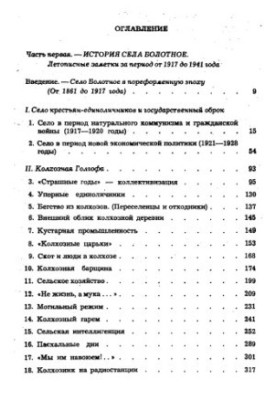Village on Golgotha. Chronicle of the communist era: from 1917 to 1967
 Instant download
Instant download
after payment (24/7)
 Wide range of formats
Wide range of formats
(for all gadgets)
 Full book
Full book
(including for Apple and Android)
The Village of Golgotha . Chronicle of the Communist Era: 1917 to 1967. by T. K. Chugunova is a deep and multi-layered study that immerses the reader in the world of a Soviet village that has survived all the vicissitudes of the communist era. The author, known for his work in social history and cultural studies, masterfully combines facts and personal stories, creating a vivid picture of life in a totalitarian regime. In this work, the Chuguns not only describe the events that took place in the village for fifty years, but also reveal their influence on the fate of the people living in it. The reader will witness how revolution, collectivization, war and perestroika shaped not only economic and social structures, but also the inner world of ordinary people. The book is full of vivid memories that make historical events closer and more understandable. Chugunov uses a rich arsenal of sources: archival documents, letters, eyewitness memories, which gives his story special credibility and emotional richness. This book will be of interest to a wide range of readers: from students and teachers studying the history of Russia, to literature lovers seeking to understand the complex processes that took place in the country in the 20th century. It will be a real discovery for those who want to understand more deeply the social dynamics and cultural transformations that occurred in the Soviet village. Readers interested in history, sociology and cultural studies will find in it many valuable ideas and reflections. The themes raised in the book are relevant to this day.. Chugunov explores how ideology influenced everyday life, how people adapted to new conditions and how they retained their identity under pressure from the state. It raises questions about how the memory of the past shapes our perception of the present and the future. In this context, the book becomes not only a historical study, but also a philosophical reflection on human destiny. Chugunov's style is distinguished by depth of analysis and brightness of presentation. He skillfully combines a scientific approach with literary expressiveness, which makes his work not only informative, but also fascinating. Reading "Village on Calvary", you can not only learn about the events, but also feel the atmosphere of time, see the world through the eyes of those who lived in an era of change. If you are interested in such works as “Gulag Archipelago” by Alexander Solzhenitsyn or “Children of Arbat” by Anatoly Rybakov, then Chugunov’s book will become a logical continuation of this literary journey for you. It offers a unique perspective on life in a Soviet village, which often remains in the shadow of more famous stories. "The Village on Golgotha" is not just an chronicle, it is an important contribution to the understanding of the complex and multifaceted history of Russia. Cast iron makes us think about how the past shapes our present and future, and why it is important to remember those who lived before us. This book is a must-read for anyone who wants to understand how history affects human destinies and how we can learn from the past.
LF/633773468/R
Data sheet
- Name of the Author
- Т.К.
Чугунов - Language
- Russian
- Volume
- том 2















